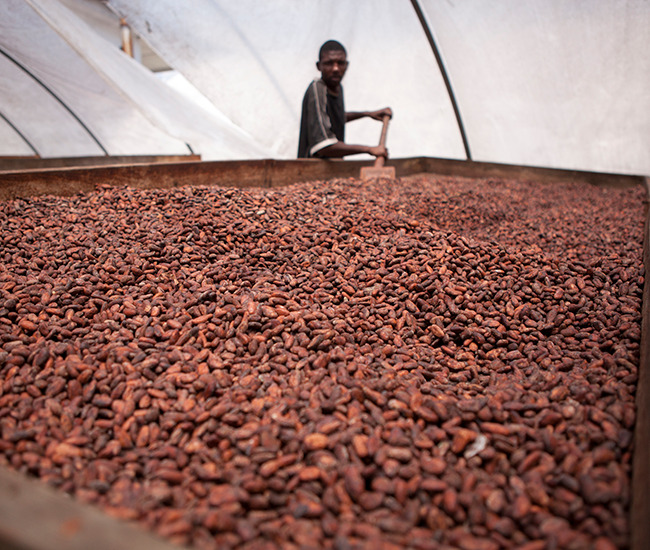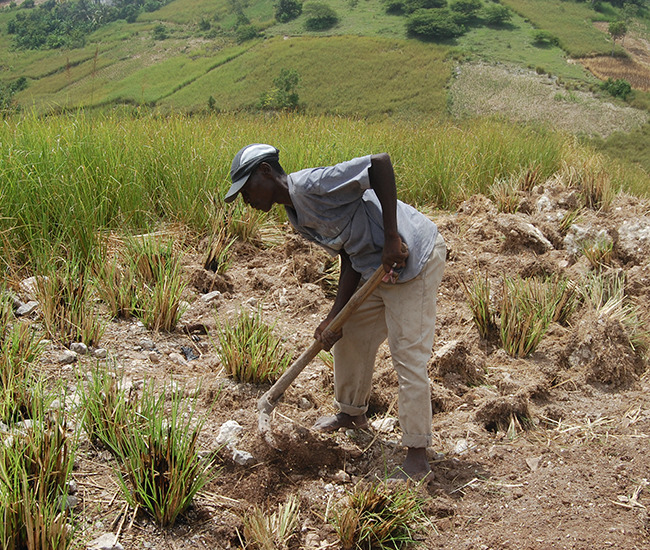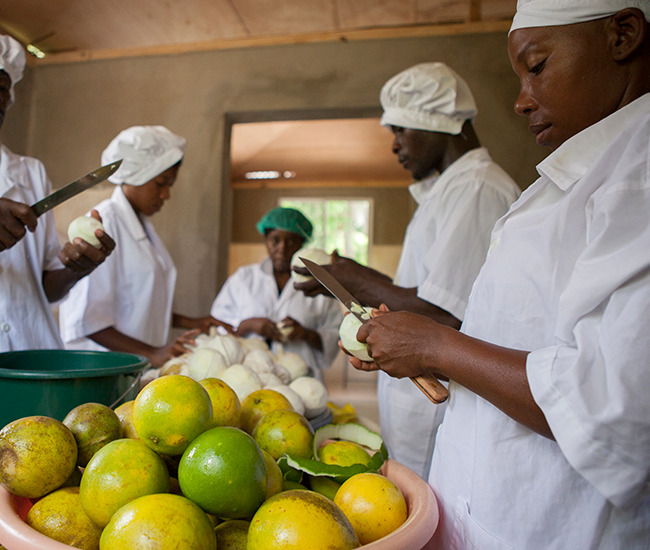Covered with 3/4 of mountains and constituted of soils of limestone types and recent alluvium, Haiti has favorable spaces for coffee culture. Nevertheless, the coffee sector has been in gradual decline for more than 20 years. Most families in coffee-growing areas are in a precarious economic situation and face high insecurity regarding access to food.
The old age of plantations, the absence of fertilization and maintenance, diseases and insects, the lack of investment, are all factors that contribute to lower yields. At present, climate change is an aggravating factor in the decline in coffee production in Haiti.
Despite these difficulties, coffee remains a strategic product for the country on an ecological, economic and social level. It protects the deteriorating mountain environment, continues to bring currency to the country, and plays a role of social stability through the large seasonal workforce it hires.
The drastic reduction in production in recent years, particularly due to the rust epidemic, puts at risk the maintenance of agroforestry systems (SAF) based on coffee trees in favor of food crops. But coffee is a staple in Haiti, 80% of which is consumed locally, informally. The remaining 20% is produced for export, via cooperative networks (washed coffee sector) that produce niche coffee, with high added value. Moreover, the challenge of maintaining FAS is very strong for the maintenance of tree cover in Haiti (which represents less than 32% of the territory, exclusively provided by coffee/ cocoa SAFs)maintaining biodiversity, which ensures the production of many ecosystem services, particularly food production, reducing erosion and maintaining soil fertility, regulating diseases and pests or sequestering carbon.
The stakes are therefore double on the coffee sector, both maintaining productivity to ensure market demands and promoting resilient agroforestry systems. The objectives of PITAG, to provide small producers with cost-effective and sustainable technologies and to contribute to strengthening the national technical base through research and training, are a serious step towards strengthening and consolidating this sector at national level. The actions to be taken in this project are as follows:
– Initiate participatory research to maximize the productivity of coffee systems through the use of good planting materials, implementation of good agricultural practices
– Promoting high added value and environmental crops in coffee systems
– Improve processing and marketing techniques for systems-based productions to gain sustainable access to niche markets
– Improving the social and environmental conditions of the Haitian coffee industry
– Strengthening national skills in coffee farming through training of producers, technicians, professionals and supervision of research dissertations (bachelor, master and doctoral students, etc..).
– Work with national actors to develop a training curriculum adapted to the national context.
Systems development through improved productivity and coffee quality in agroforestry systems that maximize the supply of ecosystem products and services and provide a risk management strategy (resilience to extreme climatic conditions in particular)








